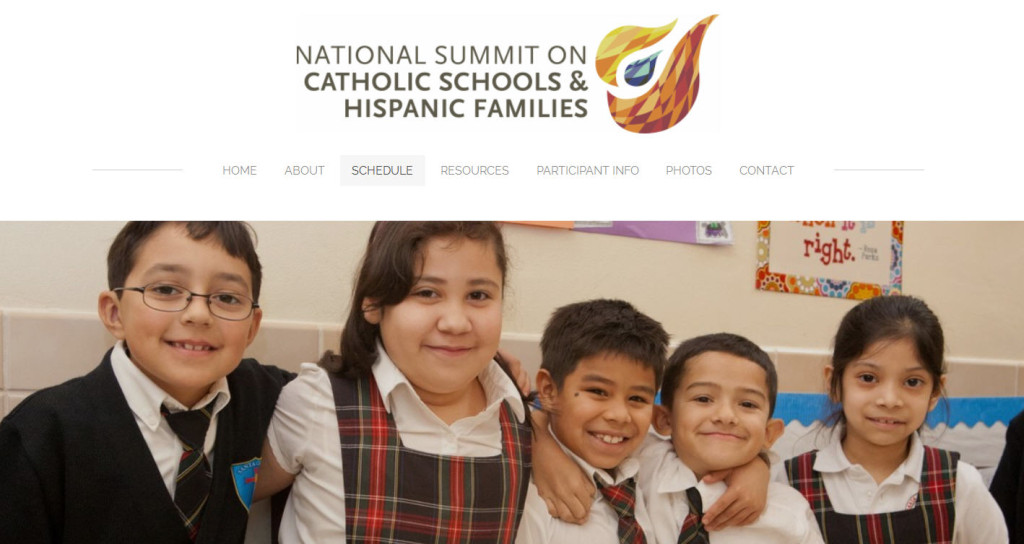Summit Takeaways: Latino Families in Our Catholic Schools
More than 200 mission-driven school and diocesan leaders, advocates, consultants and other friends of Catholic education convened over three days to discuss the vital issue of Latino families in our Catholic schools. We came from 32 states to The National Summit on Catholic Schools and Hispanic Families, hosted in September 2016 by The Roche Center for Catholic Education at Boston College.
The format: presentations, small group break-outs and think-tank style brainstorming. Our task: to critically and creatively discuss how to better address what’s being done to educate these children in a faith-based environment.
 Among the most significant facts:
Among the most significant facts:
- The number of Catholic children in the country has never been larger.
- 1 in 4 American Latinos now self identifies as a fallen away Catholic (with only 20% of those finding a new church; 80% identify as non-religiously affiliated).
- The greatest concentration of Latinos is in the south and the west, while the majority of Catholic schools are in the northeast and Midwest.
- 60% of Catholics under the age of 18 are Hispanic.
- Of the total Hispanic school age population, only 2.3% are enrolled in Catholic schools.
- In 2014, there were 55 million Hispanics in the US; by 2060, that number grows to 119 million.
“We belong to each other.” — Mother Teresa
It is imperative that we:
- Break out of the pervasive silo mentality—We cannot say “leave it to the experts” or “someone else will need to solve this.”
- Become culturally competent and sensitive—Families need to feel welcomed, included and valued in authentic ways.
- Provide role models for students—These role models include faculty and administrators who look like/speak like/could be them.
When we operate based on mission, when we embrace the idea that, as Mother Teresa said, “we belong to each other,” when diocesan and school leadership become intentional about plans to change… then we can progress and succeed.
BY KATHY LINK, Senior Director of Schools, Healey Education Foundation
